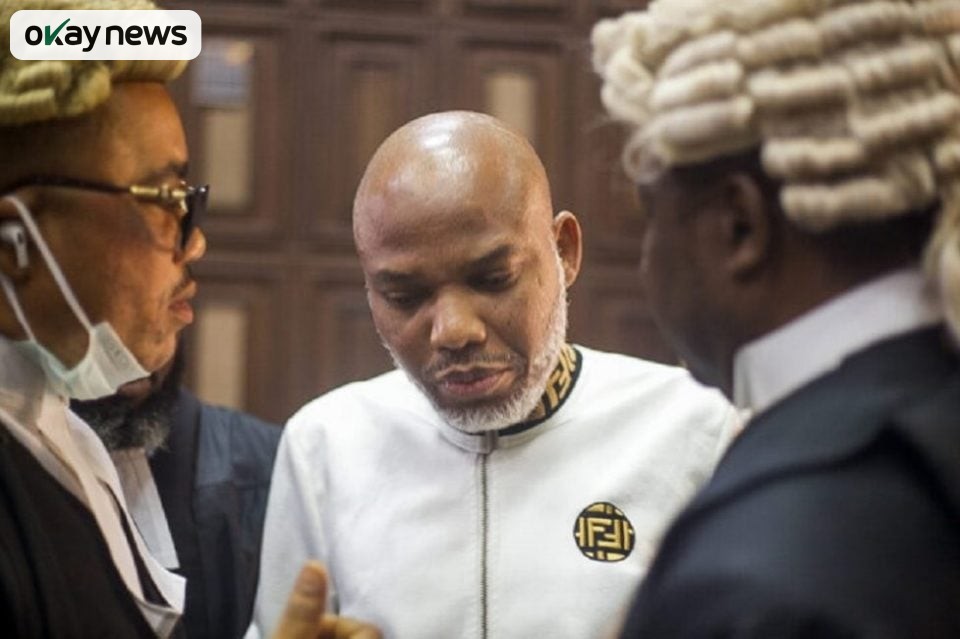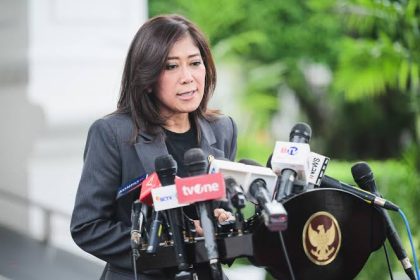The Federal High Court in Abuja on Thursday, 20th November 2025, delivered a landmark judgment against Nnamdi Kanu, the leader of the Indigenous People of Biafra, sentencing him to life imprisonment. The decision came after the court carefully considered the charges brought against him and opted for life imprisonment rather than the death penalty.
Justice James Omotosho, presiding over the case, specifically imposed the life sentence on counts one, four, five, and six, citing the severity and implications of the offences. The ruling follows months of legal proceedings that drew both national and international attention.
During the court session, tensions ran high as Kanu exhibited visible agitation, which led to brief interruptions in the proceedings. The courtroom atmosphere reflected the gravity of the case, given its political, social, and historical context.
Okay News reports that Kanu’s conviction has reignited debates across Nigeria regarding secessionist movements and the legal frameworks governing acts of treason and terrorism. Legal experts note that this decision will likely set a precedent for future cases involving politically sensitive insurgency-related offences.
The judgment has drawn immediate reactions from civil society groups, human rights activists, and international observers, some of whom have called for measured responses while others advocate for stricter enforcement of Nigerian law.







